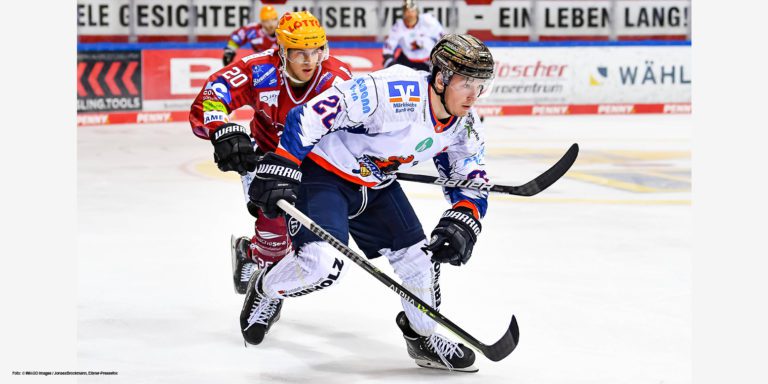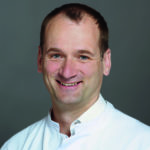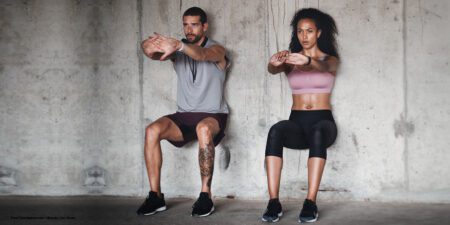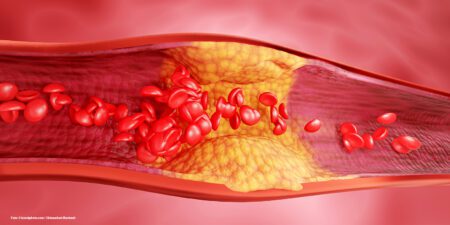Our scientific advisor, Felix Post MD, Medical Director of Internal Medicine/Cardiology at the Catholic Hospital of Coblenz-Montabaur, where he is also the head of the Corona task force, had the opportunity to read the article by Jochen Veit MD before publication and discussed it with him, as one expert to another.
Felix Post (FP) Hello Jochen, I was lucky enough to read your article before it was published in the sportärztezeitung. Congratulations! The data are really interesting and should really interest any practising team doctor.
Jochen Veit (JV) Thank you. I simply wanted to know what effect Covid has on athletes who are asymptomatic. Does asymptomatic really mean that it has no effect whatsoever? Unfortunately, I discovered evidence of changes even in asymptomatic athletes.
FP You even visited players when they were in quarantine, which allowed you to obtain data, such as elevated troponin. What did that exactly involve?
JV It wasn’t an easy job. I had to visit each player in quarantine, as they were not allowed to visit me. I had to perform the examination in full PPE. That is no routine matter. The data did surprise me though and of course also had consequences. Many players required further cardiac evaluation, in some cases even cardiac MRI.
FP You write that virtually all the players suffered some impairment, or performed worse than in their preseason fitness physical, albeit still within the normal range. What does this tell us about the sometimes very early return to play of professional athletes after Covid infection?
JV That is hard to say. On the positive side, there are as yet no known cases of players suffering harm after apparently returning to play too early after Covid. That does not mean, however, that no such cases exist. Looking at my players, I did discover one case of pericardial effusion and that only happened because I was more thorough in my testing than required. I would not be happy with a player with pericardial effusion being considered as “fit for return to competition” after 7 – 10 days’ quarantine.
FP That is the way I see it too. But what about all the amateur athletes? Sometimes they train just as hard as professional athletes and in lower divisions loads during play are often also just as high.
JV That is indeed a problem. I would really advise any dedicated athlete to have a proper medical check-up before they resume training. But I am also aware that in individual cases it can be hard to get a prompt appointment. And if we are also talking about an echocardiography, then that is virtually impossible.
FP As we are on the subject of problems, one problem that I have at the moment in supporting clubs is that not all the players live in the same administrative district. This means that the responsible health departments are not the same for all the players and so the quarantine regulations differ too. This is baffling for players and makes things complicated. So much for German federalism.
JV Luckily, it’s not a problem I share; all the players I support live in the same area. But the different quarantine regulations of the different health departments are really a problem in the league.
FP Many athletes who are either asymptomatic or have few symptoms nevertheless carry out gentle cardio exercises in quarantine to stay in condition. How do you view that?
JV I have urged my players to stop all sport and I think my results also back this up. Many players, even those who were asymptomatic, had blood count changes suggesting viraemia. Doing any sport would be counterproductive.
FP I can understand that. Finally, a look into the glass ball. What do you think will happen next with Covid?
JV I am not sure how to answer that. Can anybody answer that? The Omicron wave will pass and I think the numbers will go down in March. I also think things will get better in the summer. But nobody can say what will happen in the autumn and how we will deal with it. COVID and the restrictions imposed by it are a major burden, in professional sports too. It is particularly the inability to plan ahead that is a major challenge for many clubs, both logistically and also, of course, financially.
FP Thank you for talking to me. Please continue exactly as you are doing. Sport and athletes deserve motivated team doctors such as yourself.
Final question from the editors
Should amateur/recreational athletes self-monitor their pulse rate during and after return to sport? And would it also be advisable, for example, to dispense with stimulating, distracting music in this phase to increase self-awareness through to prophylaxis training?
JV Yes, in my opinion it is very important to monitor the pulse using an HR belt or smartwatch. With some devices it is also possible to make an ECG recording. This allows early detection of extrasystoles and arrhythmias. Any background music should also be initially avoided during workouts to allow more focused listening to the body. In general, I would also recommend amateur athletes to gradually increase loading in steps as laid out in the return to play protocol (see the sportärztezeitung). If in doubt, be mindful that it is better to take one or two steps back than to progress too fast to maximum loading and be exposed to all the health risks that may entail.
Autoren
ist Chefarzt der Inneren Medizin/Kardiologie am Katholischen Klinikum Koblenz-Montabaur und war langjähriger Teamarzt des 1. FSV Mainz 05. Seit 2015 ist er wiss. Beirat der sportärztezeitung, gehört zu deren Redaktionsteam und ist seit 2023 Mitherausgeber.
ist Facharzt für Allgemeinmedizin mit Zusatzbezeichnungen Sportmedizin, Chirotherapie
und Präventivmedizin mit eigener Praxis (gemeinsam mit Frank Emschermann) in Nordwalde. Außerdem ist er Teamarzt der Iserlohn Roosters (Eishockey DEL).





